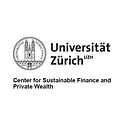The European Ecolabel Adds Additionality — CSP’s Message Heard in Brussels
One of the goals of CSP is to understand how investing can be used as a tool to enable the realization of the Sustainable Development Goals. Examples of our work on this are plenty and I have linked some of them below. The reason for this post is that there are two recent breakthroughs I would like to highlight. First, our work has found its way to the regulatory processes of the EU. Second, the data to inform sustainable decision-making is becoming increasingly available — partly thanks to our research on the subject.
This means that the needle is moving. Slowly, but it is on the move.
The EU Ecolabel — A Certificate for Impact?
The European Commission plans to launch an ecolabel for financial products. This is comparable to a label that you would find on organically produced apples. The goal is to enable consumers to choose between truly green financial products that meet a strict set of criteria and help distinguish them from superficially green products.
Based on our research and the urgency to meet the Sustainable Development Goals, we believe that “truly green” should equate to a product that has impact. By impact, we mean that the investor herself is likely to drive or accelerate change in the real economy by choosing that particular product.
With this in mind, we were very happy to see that the third iteration of the technical draft of the EU Ecolabel reflects our view and shifts focus from green products to the impact an investment can have.
The draft cites our paper four times. A key change compared to the previous draft is the insertion of the concept of investor impact — in reference to our paper. The previous draft focused only on the activities of the companies in the investment portfolios, yet the current draft looks at how the products’ characteristics exert influence on companies.
The following changes directly reflect our scientific findings and conclusions:
- An additional criterion (no 6) has been added requiring funds to explain which investor impact mechanisms they employ. Funds are also to provide evidence on their effectiveness to clients, to the extent that is feasible;
- Engagement — an important investor impact mechanism — is explicitly mentioned in the information that the label conveys to consumers. Previously, consumers could not tell from the label that a fund is doing engagement;
- Exclusion criteria were partially rewritten to focus on practices that companies can phase out, rather than industries or product categories that companies are unlikely to change. That means excluded companies have an incentive to change.
The regulation has not been passed yet, and we are part of the ongoing consultation round. Our goal is to help ensure that the EU Ecolabel becomes mainstream and is based on the notion that investing in sustainability means investing in change for the better.
Have a look at the Technical Draft Report here. We warmly welcome you to search the document with the keyword: Koelbel.
ESG Data Sees More Light
Another highlight of the autumn was the news that S&P Global, who recently acquired the prominent environmental, social, and governance or ESG rating agency CSA from RobecoSAM, decided to make their data-set available at a much more granular level. We are very happy to see this, as it follows the recommendation we made in our Aggregate Confusion project.
The project implemented together with MIT looks at the differences in ESG ratings and seeks to provide guidance toward reliable ESG data. We underscore the importance of good and transparent measurements of all relevant ESG aspects so that investors themselves are able to set the scope and weights of the data provided to them. The goal is that through these assessments, investors are able to make reliable, data-based ESG conclusions. The move to open the data behind the ratings provided by CSA is an important step in this direction.
The ship we are steering is a big one. It moves slow and we are not the only ones guiding this ship. Yet, the above examples are proof that work on sustainability pays off. The ship turns.
With these two milestones, I wish you a good transition to the new year and I thank you for your support for our work!
Dr. Julian Kölbel
Head of Research
Center for Sustainable Finance and Private Wealth
University of Zurich
P.S. Here a list of recommended resources and examples on our work:
Investor’s Guide to Impact
How an Investor Can Have Impact Webinar
Aggregate Confusion Webinar
